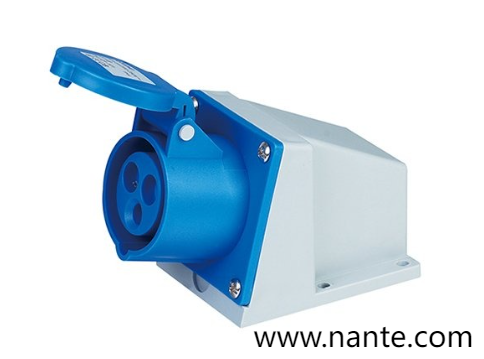Industrial plugs play a vital role in powering machinery and ensuring seamless operation across various industries. Over time, however, wear and tear can compromise their performance, posing potential hazards such as electrical fires or unexpected downtime. Recognizing when to replace an Industrial Plug is essential to prevent these risks. By understanding the signs of wear and knowing the proper time for replacement, you can safeguard your equipment and operations from disruptions.
The most common signs that an industrial plug needs replacing involve visible damage or irregularities. If the plug's casing shows cracks, burns, or signs of melting, this is a clear indicator that the plug may no longer provide the insulation needed for safe operation. Prolonged exposure to high temperatures or mechanical stress can degrade the plastic, leading to potential electrical hazards. In addition to visible damage, check for any loose or frayed wires. If the plug's internal wiring appears exposed or frayed, it's essential to replace the plug immediately to avoid the risk of electrical shorts or sparks.
Another factor to consider is the frequency of plug usage. Over time, the internal components of industrial plugs, such as the contacts and terminals, can wear down, leading to poor conductivity. If the plug has been used extensively, especially in high-stress environments like construction sites or factories, it may be time to replace it, even if there's no visible damage. Reduced performance or intermittent power disruptions can be an indication that the plug's internal connections are no longer functioning optimally.
Electrical performance is also an essential consideration. If you notice that machines powered by the plug are experiencing unusual electrical behavior, such as flickering lights, power loss, or slower-than-normal operation, it's worth investigating the plug's condition. A faulty industrial plug can cause power surges or irregular voltage, which can damage sensitive equipment. Replacing the plug can prevent further damage to your machinery and ensure a stable power supply.
Environmental factors can also impact the longevity of an industrial plug. Plugs exposed to moisture, extreme temperatures, or corrosive materials can degrade more quickly. Water ingress or rust on the metal contacts is a sign that the plug may no longer function safely. Regular inspection and maintenance can help you identify these issues before they lead to more severe consequences.
Prevention is always better than cure, so don't wait until a plug shows signs of failure. Scheduling regular maintenance checks is a proactive way to ensure the continued safety and efficiency of your operations. During these checks, inspect plugs for any visible wear, test their functionality, and ensure that they are securely connected. Replacing plugs during scheduled maintenance reduces the likelihood of unexpected equipment failures and ensures that your work continues smoothly.
It's also essential to consider the type of plug being used. Not all industrial plugs are created equal, and selecting the right plug for your application is critical. Industrial plugs come in a range of ratings, designed to handle different voltages, currents, and environmental conditions. When selecting a replacement plug, ensure that it matches the specifications of the equipment it's powering. Using an incorrect plug can lead to inefficiency or, worse, equipment damage.
Lastly, while some industrial plugs may be more durable than others, it's essential to replace them regularly to maintain the integrity of your power distribution system. Industrial environments, where equipment runs continuously or under high stress, require plugs that can endure heavy usage. For these environments, consider investing in high-quality plugs designed for longevity and performance.
When it's time to replace your industrial plugs, choosing a reputable supplier is essential. Ensure that the products meet safety standards and are suitable for your specific needs. For reliable, high-quality industrial plugs, explore the range of products offered at https://www.nante.com/product/socket-plug/industrial-plug/ . With a focus on durable and safe electrical components, Nante provides solutions that help protect your operations and maintain the performance of your equipment.

